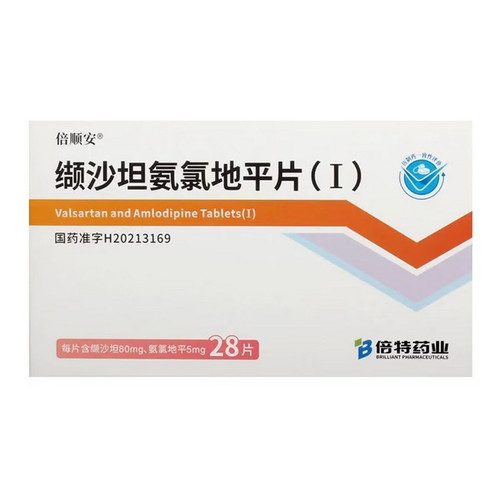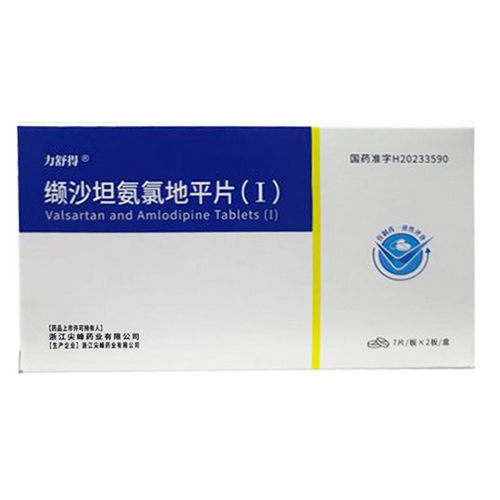Product Overview
[Drug Name]
Generic Name: Valsartan Amlodipine Tablets (I)
Trade Name: BaiBang Valsartan Amlodipine Tablets (I) 7 Tablets
Pinyin Code: BaiBang ZuoShaTanAnLvDiPingPian (I) 7 Tablets
[Main Ingredients]
This product is a compound preparation containing 80mg of valsartan and 5mg of amlodipine per tablet.
[Properties]
Valsartan Amlodipine Tablets (I) are film-coated tablets. When the film coating is removed, the tablets appear white.
[Indications/Main Functions]
Treatment of essential hypertension. This product is used for patients whose blood pressure cannot be adequately controlled with monotherapy.
[Precautions]
See package insert for details.
[Drug Interactions]
Valsartan Amlodipine Tablets (I) are contraindicated in patients with allergies to the active ingredient or any of the excipients. Pregnant and lactating women should not use this product (see [Use in Pregnant and Lactating Women]). Currently, there are no data on its use in patients with severe renal impairment (creatinine clearance <10 ml/min). This product should be contraindicated in patients with hereditary angioedema and those who develop angioedema early in treatment with ACE inhibitors or angiotensin II receptor antagonists.
[Specifications]
7 tablets
[Dosage and Administration]
Amlodipine 2.5-10 mg once daily is effective for the treatment of hypertension, while valsartan is effective at doses of 80-320 mg. In clinical trials of once-daily valsartan-amlodipine tablets, antihypertensive efficacy increased with increasing doses of amlodipine 5-10 mg and valsartan 80-320 mg. Adverse reactions to valsartan are generally dose-independent; those with amlodipine are both dose-dependent (primarily peripheral edema) and dose-independent, with the former being more common than the latter. Patients whose blood pressure cannot be adequately controlled with monotherapy may be treated with Bebot.
[Adverse Reactions]
See package insert for details.
[Contraindications]
Valsartan and Amlodipine Tablets (I) are contraindicated in patients with hypersensitivity to the active ingredient or any of the excipients. Pregnant and lactating women are contraindicated (see [Use in Pregnant and Lactating Women]). No data are available on the use of this product in patients with severe renal impairment (creatinine clearance <10 ml/min). This product should be contraindicated in patients with hereditary angioedema and in patients who develop angioedema early in treatment with ACE inhibitors or angiotensin II receptor antagonists.






